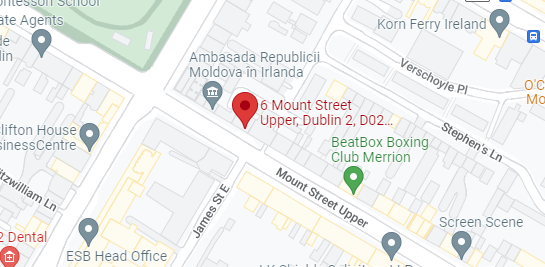Any well-run organisation will want to have a mechanism in place for the proper investigation of complaints or suggestions of error but to what extent might such honest self-scrutiny further increase the risk of exposure. In the recent judgment in Director of the Serious Fraud Office (“SFO”) v Eurasian Natural Resources Corporation Limited (“ENRC”) and another of 5 September 2018, the Court of Appeal has offered some clarity in this regard.
What is Legal Professional Privilege?
In the event of a legal dispute, generally a party is obliged to disclose to the Court (or arbitrator) and other parties all relevant documentation. “Legal professional privilege” is a right which enables a party to resist such disclosure in certain circumstances. There are two main categories of “privilege”: the first is “legal advice privilege” which, in short, will attach to communications between a lawyer and client where the dominant purpose of the communication was to obtain legal advice; the second is “litigation privilege” which is wider in terms of the parties that might generate the relevant documentation as (again in summary) it attaches to any communications between parties or their solicitors and third parties for the purpose of obtaining information or advice but only when the following conditions are satisfied:
- litigation must be in progress or in reasonable contemplation;
- the communications must have been made for the sole or dominant purpose of conducting that litigation; and
- the litigation must be adversarial, not investigative or inquisitorial.
The Court of Appeal’s decision touches on both categories. It related to documents generated by solicitors and forensic accountants in investigating alleged fraudulent practices committed in Kazakhstan and Africa within ENRC following receipt of a whistle-blowing email alleging corruption in a wholly owned subsidiary in response to which ENRC undertook an internal information gathering exercise and engaged with the SFO in connection with the SFO’s “self-reporting” regime.
First Instance Decision SFO v ENRC
As far as litigation privilege was concerned, it was held at first instance that absent the uncovering of self-incriminating evidence to suggest that a prosecution was “likely”, ENRC had failed to demonstrate that the relevant communications and documentation generated could be said to have been in “reasonable contemplation” of proceedings. This creates a clear dilemma: unless one investigates the facts one cannot make a judgment but if one investigates those facts in order to then make a judgment, one risks creating non-privileged self-incriminating documents.
The first instance judgment also drew a distinction between documents created for the “conduct of actual or contemplated litigation” including for potential settlement and those created to “avoid” litigation in the hope one may persuade another party not to commence proceedings in the first place. It was also found that as criminal proceedings cannot be started unless and until the prosecutor is satisfied that there is a sufficient evidential basis for prosecution and the public interest test is also met, unless the target either knows that it has committed a criminal offence or knows that there is “a problem which makes criminal prosecution a real rather than fanciful prospect”, proceedings cannot be in reasonable contemplation.
As far as legal advice privilege is concerned, the first instance decision followed the Court of Appeal decision in Three Rivers (No. 5) and held it only to attach to communications between the lawyer and those individuals who were authorised to obtain legal advice – mere authorisation to communicate with lawyers or provide information is not enough; moreover, the lawyers’ work product would only attract legal privilege if disclosure would betray the tenor of the legal advice.
Court of Appeal Decision SFO v ENRC
The Court of Appeal held that the first instance Judge’s distinction between civil and criminal proceedings was illusory and found as a question of fact that the Judge was wrong to conclude that a criminal prosecution was not reasonably in prospect after the SFO had written its initial letter. It found that in all the circumstances, the whole sub-text of the relationship between ENRC and the SFO borne out by the evidence was the possibility, if not the likelihood, of prosecution if the self-reporting process did not result in a civil settlement.
The Court of Appeal was not sure that every SFO manifestation of concern would properly be regarded as auguring adversarial litigation, but when the SFO specifically makes clear the prospect of a criminal prosecution and legal advisers are engaged by the target to deal with that situation, there is a clear ground for contending that criminal prosecution is in reasonable contemplation. This is notwithstanding that further investigations may be necessary before a party can say with certainty that proceedings are likely: that uncertainty does not in itself prevent proceedings being in reasonable contemplation and the first instance Judge was wrong, (particularly in the case of an international company as opposed to an individual), to regard the uncertainty as pointing against a real likelihood of a prosecution. The fact that a formal SFO investigation had not commenced will be one part of the factual matrix but will not necessarily be determinative.
The Court of Appeal also held that legal advice given to head off/avoid reasonably contemplated proceedings is as much protected by litigation privilege as advice given for the purpose of defending or settling such proceedings.
As far as legal advice privilege is concerned, the finding on litigation privilege in favour of ENRC meant that this did not need to be considered in detail. Notwithstanding, the Court of Appeal appeared uncomfortable with decision in Three Rivers (No. 5) in its restriction in scope of legal advice privilege to communications to and from employees tasked with seeking and receiving such advice on behalf of the client; however, the Court of Appeal made clear that if that case is to be overturned that was a matter for the Supreme Court.
Similarly, the Court of Appeal declined to decide whether it was correct that lawyers’ working papers are only protected by legal advice privilege if their disclosure would betray the tenor of the legal advice leaving this also as a matter for the Supreme Court.
Lessons Learned
The Court of Appeal was clearly influenced the public interest policy behind the “self-reporting” regimes of permitting companies to investigate allegations from whistle-blowers or investigative journalists, prior to going to the SFO (or similar), without losing the benefit of legal professional privilege for the work product and consequences of their investigation. Absent such comfort, the more attractive option could become to do nothing and see if prosecution ever materialises, rather than risk self-incrimination through such proactive self-investigation.
The Court of Appeal judgment also makes clear that although a higher standard of certainty may be required for any criminal prosecution to ensue (for instance, the burden of proof is usually “beyond reasonable doubt”, rather than the balance of probabilities), there is no general principle that litigation privilege cannot attach until either a defendant knows the full details of what is likely to be unearthed or a decision to prosecute has been taken. That said, such analysis will remain fact-sensitive in all the circumstances as to whether a criminal prosecution has been clearly intimated and, similarly, as to whether privilege has in fact been “waived” (in this case it was noted that the SFO had never contended for a waiver of privilege). Furthermore, the decision has no bearing on regulatory, as opposed to criminal investigations, where litigation privilege is not available.
Finally, if litigation privilege cannot be established, unless and until the Supreme Court revisits the issue, the restrictive interpretation of the client as those charged with obtaining legal advice on behalf of an organisation will prevail in determining whether legal advice privilege can be claimed as a fall-back. In view of the above, any party facing allegations of wrongdoing remains advised to obtain early professional guidance as to the proper categorisation of the matter, the handing of any investigation and the creation of communication lines both internally and externally.
This article was written by Peter Campion, Senior Consultant



